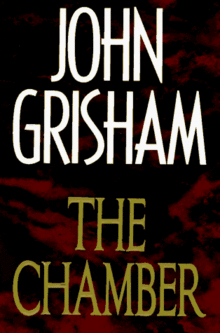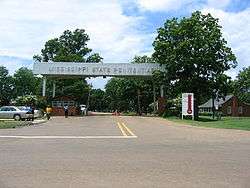The Chamber (novel)
 First edition cover | |
| Author | John Grisham |
|---|---|
| Original title | The Chamber |
| Country | United States |
| Language | English |
| Genre | Legal thriller novel |
| Publisher | Doubleday |
Publication date | 1994 |
| Media type | Print (Hardcover, Paperback) |
| Pages | 496 |
| ISBN | 0-385-42472-8 |
| OCLC | 30075172 |
| 813/.54 20 | |
| LC Class | PS3557.R5355 C47 1994 |

The Chamber (1994) is a legal thriller written by American author John Grisham. It is Grisham's fifth novel.
Plot
In 1967, in Greenville, Mississippi, the office of Jewish lawyer Marvin Kramer is bombed, injuring Kramer and killing his two young sons. Sam Cayhall, a member of the Ku Klux Klan, is identified, arrested and tried for their murders, committed in retaliation for Kramer's involvement in the Civil Rights Movement. Sam's first two trials, engineered by his Klan-connected lawyer, each end in a mistrial. Twenty years later, the FBI pressures a suspected associate to testify against Sam at a third trial. Sam is convicted and sentenced to death by exposure to lethal gas. He is sent to the Mississippi State Penitentiary, and placed on death row.
Now without a lawyer, Sam becomes a pro bono case for a team of anti-death penalty lawyers from the large — and ironically Jewish — Chicago law firm of Krawitz and Bane. Representing Sam is his own grandson, Adam Hall, who travels to the firm's Memphis office to aid Sam in the final month before his scheduled execution. Although lacking experience in death penalty cases, Adam is determined to argue a stay for his grandfather. Sam, despite his violent past, is one of the few living links to Adam's family history. Sam's alcoholic daughter, Lee Cayhall Booth, slowly reveals the family's tragic past to her nephew, Adam.
Initially uncooperative, Sam eventually opens up to Adam and reveals a remarkable depth of hard-won legal knowledge, regularly preparing his own briefs and court motions. Adam interviews the FBI agent who was in charge of the original case, and comes to realize that Sam almost certainly did not commit the actual crime for which he has been found guilty, although he was present. Sam, nevertheless, has a long and largely-secret history of Klan-related crime and has killed several times. Dogan, the associate who testified against Sam at his third trial, has apparently been murdered by the Klan. Sam himself will not reveal if another associate exists, thus not violating the Klan's loyalty oath.
Adam desperately files motion after motion and argues some of them before judges. He seeks to persuade Mississippi's governor to grant a reprieve, knowing full well that such a move is politically impossible; Sam forbids such a move, suspecting that the governor is using him for political gain.
All appeals are finally exhausted. Sam is now repentant, but does not want Adam as a witness to the execution. The sentence is carried out.
With Sam and Dogan dead, no-one knows that Roland, the third man, who prepared and set off the bomb, is still free and living nearby, under a false identity and observing the progress of the case. Adam, sickened but fascinated by the experience, quits the law firm to accept a poorer-paid position with a group of anti-death penalty lawyers.
Lawsuit and dismissal
Lawyer and author Polly Nelson sued Grisham in 1995, alleging The Chamber had striking similarities to Defending the Devil, her nonfiction book about her experiences as lawyer for serial killer Ted Bundy.[1][2] After Grisham prevailed in a lower court ruling in 1996, the case was dismissed on appeal in 1997.[3]
Film adaptation
In 1996, The Chamber was made into a feature film starring Gene Hackman and Chris O'Donnell.
References
- ↑ Torry, Saundra (June 19, 1995). Fact, Fiction and Fairness: The Copyright Wars Surge. Washington Post
- ↑ Owens, John B. (2000). Grisham's Legal Tales: A Moral Compass for the Young Lawyer. 48 UCLA L. Rev. 1431 (2000-2001)
- ↑ Kelly, Keith J. (October 10, 1997). Suit Doesn't Fit Grisham. New York Daily News
External links
- "The Chamber Excerpt." John Grisham Official Website
- "The Chamber." Google Books